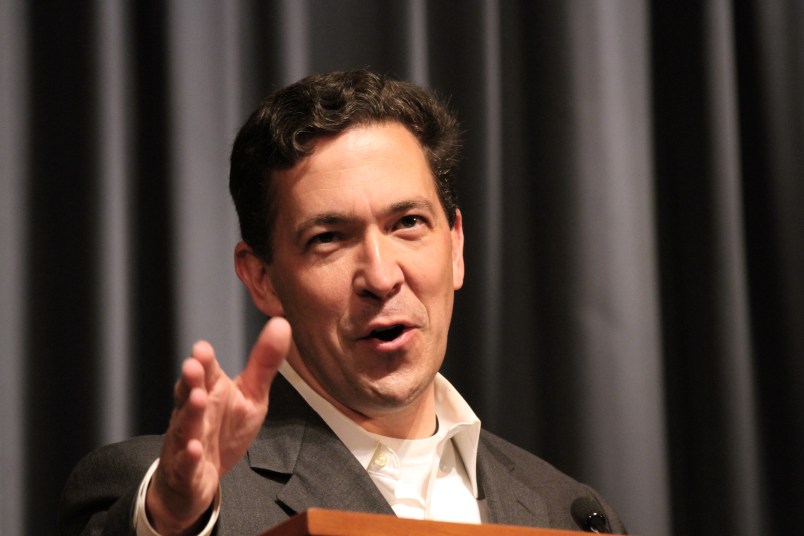Trolling? A bit but not entirely. I asked earlier whether anyone remembered whether Chris McDaniel had committed or declined to commit to voting for Thad Cochran if Cochran won the primary. I think he also declined to commit to Cochran before the first primary or the primary proper, as opposed to the run-off. But he did it again just before the run off. Now, why does this matter? Well, it actually matters quite a lot if you accept the theory on which McDaniel and company are now saying the votes of potentially thousand of African-American voters should be disqualified, he should be declared nominee and also be awarded a valiant unicorn steed on which to gallop to victory.
Here’s how this works. McDaniel says that one reason he really won is that 35,000 Democrats voted in the Republican primary. According to his logic, those Democrats were violating the law that says you can’t vote in a primary unless you plan to support the nominee. Because they’re Democrats by definition they can’t be intending to vote for the Republican nominee. Therefore, their votes are fraudulent and McDaniel really won.
So far so good. And there is a certain 30,000 foot view logic to this argument. The problem is that there are no Democrats or Republicans in Mississippi because there’s no party registration. In the eyes of the state of Mississippi, McDaniel is as much a Democrat as the head of the Democratic party is a Republican. You can only infer partisan identity from past voting. And that can only allow you to make a further inference about future voting. So, yes, let’s take the African-American voters McDaniel is talking about. If most have voted for Democrats their entire lives, it’s pretty likely they plan to vote for Democrats in the future and in November. But good luck proving intent with any particular person. So the whole thing totally falls apart almost immediately.
But remember, the statute in question (which has already been ruled enforceable because of the intent issue I just mentioned) doesn’t say anything about cross party lines.
Here’s the statute’s language …
No person shall be eligible to participate in any primary election unless he intends to support the nominations made in the primary in which he participates.
You don’t just have to intend to vote for the person you’re voting for. You have to intend to vote for whoever wins the primary.
But look at this. Just before the runoff when asked whether he would vote for Cochran if Cochran won, McDaniel said “I’ll have to think about it, depending on what happens that evening. I’ll let you know that evening.”
In other words, by McDaniel’s own public statement, he was at best uncertain whether he planned to vote for the winner of the primary he was participating in.
Now, do I think McDaniel is likely to be prosecuted for this or should be? No. But you put the statute up against his own statement and on its face it sounds like he was himself ineligible to vote on Tuesday. That may be true of thousands of other de facto Democrats and tens of thousands of (McDaniel supporting) de facto Republicans. But none of them were quoted on the eve of the primary essentially disqualifying themselves from participating. But McDaniel was. And for what it’s worth, the laws un-enforcability was, I think, judged on the basis of impossibility of proving intent based on inferences and past voting records. Have they ever had someone who, at a minimum, suggested they hadn’t decided whether they would vote for the nominee.
Yes, the whole thing is sort of a reductio ad adsurdum down the rabbit hole of Chris McDaniels’ world of derp. But this is his theory. And the theory seems to fit him way better than it fits the voters whose votes he wants to invalidate.






